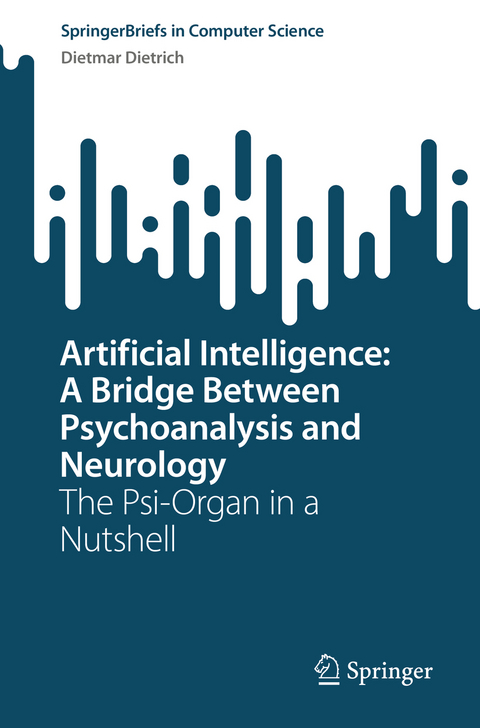
Artificial Intelligence: A Bridge Between Psychoanalysis and Neurology
Springer International Publishing (Verlag)
978-3-031-30367-8 (ISBN)
To be able to merge the psyche with the neural system has been a long-sought goal. There is much scientific literature on results from research on this topic, but the goal of this "booklet" is to present the subject in a nutshell and to attract a wider audience to this highly complex topic. Scientists often need years to grasp the scope and implications of merging the psyche with the neural system. Does that really have to be the case? What does the simulated model look like? What are the underlying philosophies? Can it be understood without mathematical formalism?
Uniting the psyche and neurology in one model, on the one hand, allows psychological and social theories to be tested on a scientific basis using simulation experiments. On the other hand, a model developed according to the functional structures of the human brain, let us call it the Psi-Organ, which comprises neurology and psyche as one unit, can serve as a basis for AI systems. These can be systems with cognitive capabilities that save human lives, save energy, ensure safety at airports, provide support in caring for the elderly and much more. In other words, systems that can simplify our lives in the most relevant ways and on a broad basis. This model, the Psi-Organ, goes far beyond today's primarily behavior-based AI methods.
The manuscript can serve as an excellent introduction to the problem of understanding and modelling the human mind, and to the problem of achieving artificial "intelligence" in general, increasing awareness and understanding for the associated challenges. In that regard, it is a valuable supplementary text for advanced students or researchers in the field, notably not only in AI, but also (and perhaps primarily) in the medical fields.Dietmar Dietrich is an electronics technician. With the help of the German Foundation “Studienstiftung des Deutschen Volkes”, he studied electrical engineering in Karlsruhe. After his doctorate, he worked in aeronautical engineering and later in communications engineering. His main topics as a professor of computer technology (in Bielefeld and Vienna), after working in the industry, were mainly automation processes, air traffic control, and increasingly problems of artificial intelligence. He was an organizer and co-organizer of many national and international scientific conferences, and for decades served worldwide on industrial and scientific committees. He previously edited the book “Simulating the Mind - A Technical Neuropsychoanalytical Approach” (Springer, 2009). He is the author of well over 200 publications and 19 books in the fields of automation, air traffic control, fieldbus technology, information technology, communications engineering or computer technology.
1. Introduction.- 2. Principles of Description.- 3. Functions and Their Behavior.- 4. Extended Mealy Theory.- 5. Information Systems of High Intelligence.- 6. World of Hardware - Neuroscience and More.- 7. World of Information - Pscychoanalysis and More.- 8. The -Organ: A SiMA Model.- 9. Turing, Intelligence and the Self.- 11. Scientific Elaboration of Consciousness.
| Erscheinungsdatum | 13.05.2023 |
|---|---|
| Reihe/Serie | SpringerBriefs in Computer Science |
| Zusatzinfo | XIII, 58 p. 10 illus., 2 illus. in color. |
| Verlagsort | Cham |
| Sprache | englisch |
| Maße | 155 x 235 mm |
| Gewicht | 124 g |
| Themenwelt | Geisteswissenschaften ► Psychologie |
| Informatik ► Theorie / Studium ► Künstliche Intelligenz / Robotik | |
| Schlagworte | Artificial Intelligence • Braitenberg Experiment • Computer Technology • Emotion Vector • Information Theory • Mealy Machine • metapsychology • Neurology • Neurosymbolism • Psi-Organ • Psychoanalysis • turing test |
| ISBN-10 | 3-031-30367-9 / 3031303679 |
| ISBN-13 | 978-3-031-30367-8 / 9783031303678 |
| Zustand | Neuware |
| Informationen gemäß Produktsicherheitsverordnung (GPSR) | |
| Haben Sie eine Frage zum Produkt? |
aus dem Bereich


